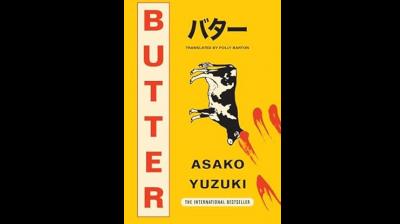Book Review | Knife-edge of an artist’s vision cuts through fear and loathing
Knife: Meditations After an Attempted Murder is not only Rushdie’s account of that violent act — it is also his way of “owning’’ it
On August 12, 2022, when Salman Rushdie was on stage to deliver a talk at Chautauqua in New York, a young man dressed all in black ran up to the 75-year-old author and started stabbing him repeatedly. Rushdie nearly died of the attack. Thirty-three years after Ayatollah Khomeini of Iran pronounced a fatwa on his head for his novel The Satanic Verses — a fatwa that sent Rushdie into hiding for a decade — a would-be assassin had finally come within whispering distance of making that sentence a reality.
Knife: Meditations After an Attempted Murder is not only Rushdie’s account of that violent act — it is also his way of “owning’’ it, for it is in the writing of it that he felt he could take charge of his almost-assassination, and attempt to make some sense of this profoundly senseless attack by a radicalised young American who had read no more than two pages of his work. Twenty-four-year-old Hadi Matar turned out to be the nemesis, the angel of death that Rushdie had believed he had dodged after he came out of hiding and embraced normal life. Over the years, the fatwa seemed to have faded into oblivion. Matar, whom he refers to as “A’’ (for assassin) in the book, had made it chillingly clear and present once again.
The attack happened at a particularly happy time for Rushdie. He was in love — he had married the poet Rachel Eliza Griffiths the previous year (he is cloyingly admiring when he writes about his current wife) — and he was awaiting the release of his latest novel, Victory City. He was planning his next, too, for which he was making notes. The events of that bright summer day in Chautauqua put a knife through his contented, productive life. Although he survived, his recovery from his grievous wounds was slow and painful. And, of course, he lost an eye. The knife had reached the optic nerve of his right eye and it could not be saved. He found this the hardest to come to terms with.
After the fatwa was declared in 1989, Rushdie had decided that he would neither write “revenge” books nor “frightened” books, as that would derail his literary journey and destroy him as an artist. Later, he liked to say: “Imagine that you knew nothing about me, that you had arrived from another planet, perhaps… Then, if you read my books in chronological order, I don’t believe you would find yourself thinking, Something calamitous happened to this writer’s life in 1989. The books are on their own journey.’’
This time, though, he knew that he needed to tackle the attack and what it meant to him before he could move on as an artist and a writer. And so to Knife, which, unlike the third-person narrative of his autobiographical memoir Joseph Anton, is written in a visceral first-person, because, as he says, “when someone wounds you 15 times it definitely feels very first-person”. But even though the book is so deeply personal, the writing eschews any sense of fear or malice or vengeance towards his assailant. There is some degree of satisfaction that he faces a long jail sentence, but for the most part, its tone is dispassionate, almost clinical.
At one point, Rushdie had wanted to meet “A’’ and talk to him. He abandoned the idea later, choosing instead to hold an imaginary conversation with him in the book where he attempts to understand his motives for trying to kill him. He confronts A’s blind unreason with his own reason and tries to cut through the woolly claptrap of the man’s dogma, his sad, ruinous indoctrination, with his own “knife” — his words, which have, and always will be, an author’s most powerful weapon. As Pampa Kampanna, the protagonist of his novel Victory City, says: “Words are the only victor.’’
The book is scintillant with insights into Rushdie’s mind and his thoughts on art, creative freedom, religion, fanaticism, the rise of authoritarianism (there are multiple references to India sliding into its embrace) and, indeed, his own purpose as an artist now that he has been given a second chance at life. “…art challenges orthodoxy,’’ he writes. “To reject or vilify art because it does that is to fail to understand its nature. Art sets the artist’s passionate personal vision against the received ideas of its time…And in the end it outlasts those who oppress it.”
Knife brings you up close with Salman Rushdie, the man — at his most vulnerable in body and spirit, and then resurgent and strong once more. No doubt the writing of it brought him some closure over the traumatic events of August 2022. For us readers, though, it opens up a pathway to his mind that burns as brightly as ever.
Knife
By Salman Rushdie
Penguin
pp. 192; Rs 699


















